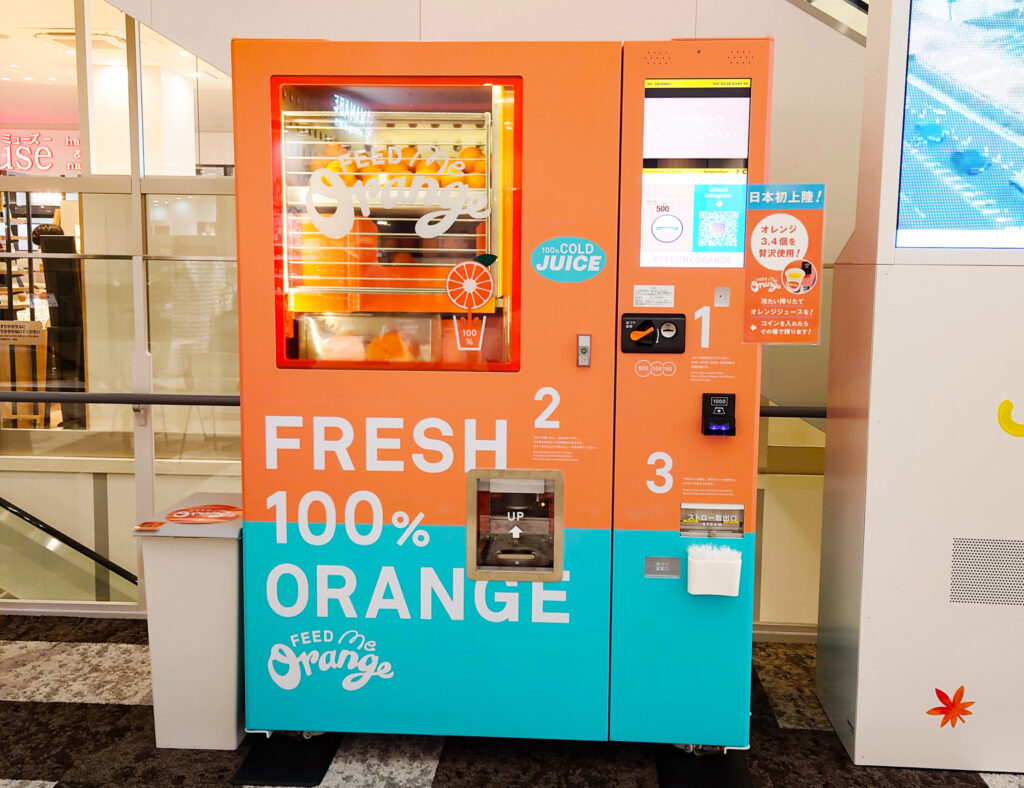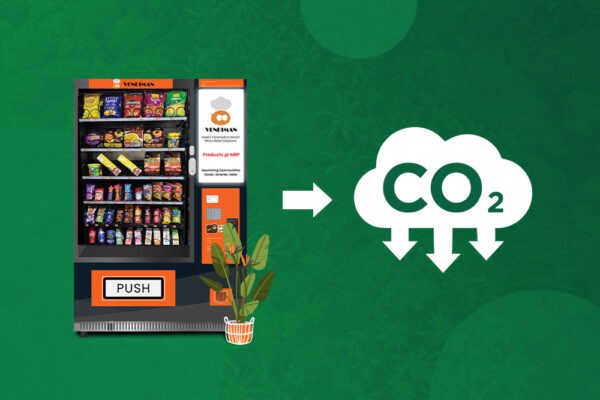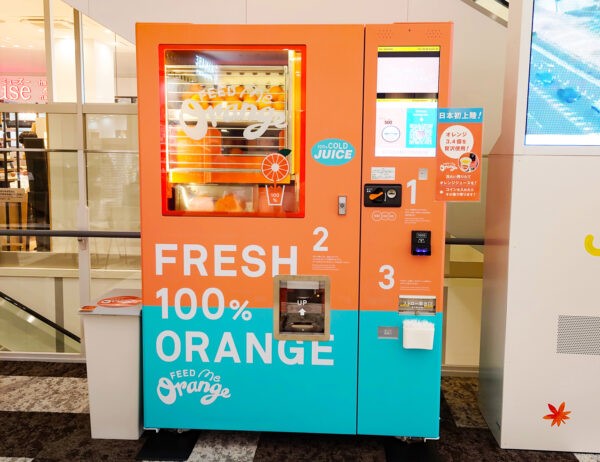
Credit: SoraNews24
Vending Machines and Their Popularity
Vending machines have become increasingly popular in recent years in our modern society, offering a convenient and quick way to purchase snacks, drinks, and other items. With their popularity on the rise, it is crucial to address the importance of proper vending machine disposal to minimize the environmental impact associated with these machines. Aco Recycling is the first company to develop AI Recognition Module for Reverse Vending Machines, machines have been already deployed to deposit and non deposit countries.
Importance of Proper Vending Machine Disposal
When waste is not disposed of properly, it can contaminate soil, water sources, and even the ocean. In non-deposit countries, where bottle recycling is not as prevalent, bottles often end up in landfills or as litter.
Materials used in vending machines and their impact on the environment
The environmental impact of vending machines is significant and often goes unnoticed. These machines are made up of various materials, including metals, plastics, and glass, which can all have detrimental effects on the environment if not disposed of correctly. Improper disposal can lead to pollution of landfills and water sources, as well as the release of harmful chemicals into the air.
Energy consumption and waste generation during the manufacturing and operation of vending machines

Credit: vendiman.com
Furthermore, the manufacturing and operation of vending machines contribute to energy consumption and waste generation. From the extraction of raw materials to the production of machines, energy is consumed, and waste is generated at every stage.
Contribution to electronic waste and the need for responsible vending machine disposal methods
Additionally, vending machines contribute to the growing problem of electronic waste, as they contain electronic components that need to be properly disposed of to avoid harm to the environment.
Methods for Properly Disposing Vending Machines
One of the methods for vending machine disposal is recycling. Different components of the machines, such as hazardous materials like refrigerants and batteries, can be disposed of responsibly through specialized recycling facilities. Additionally, metals, plastics, and glass used in vending machines can be recycled to reduce the demand for new materials and minimize the environmental impact. Read here how to start a recycling program.
Donating or repurposing vending machines to extend their lifespan
Another approach is to donate or repurpose vending machines to extend their lifespan. By finding new uses for these machines, we can reduce waste and maximize their utility. This can be done through partnerships with charitable organizations or by repurposing them for alternative purposes such as storage or display units.
Working with certified e-waste recyclers and disposal companies
Working with certified e-waste recyclers and vending machine disposal companies is crucial to ensure that machines are disposed of correctly. These professionals have the necessary expertise and resources to handle the recycling or proper disposal of vending machines, minimizing the environmental impact.
A Brief overview of RVM
In recent years, the concept of reverse vending machines (RVMs) has gained traction as a sustainable solution for beverage container disposal. RVMs are automated machines that accept empty beverage containers, such as water bottles or soda cans, and provide a refund or incentive in return. This added convenience benefit enables the RVM to correctly sort the waste, so it does not end up dumped in the environment.
These machines use artificial intelligence (AI) to scan, sort, and store containers, making the recycling process more efficient and convenient. To date, there are more than one hundred thousand RVMs spread globally. Despite the efficiencies found in reverse vending machines, their high acquisition costs are a disadvantage, as machines typically cost more than $6,000.
By using RVMs, consumers can easily recycle their beverage containers and contribute to the overall recycling rates. Each year, 1.4 trillion beverage containers are used around the world, representing a vast amount of material that can be collected and reused or recycled and RVMs have the potential to significantly reduce waste and promote a circular economy. Lastly, both RVMs and recycling bins are located in convenient areas (supermarkets, schools, etc. ), but recycling centers are found sparingly in cities/towns because they take up a lot of space.
In countries where deposit systems are already in place, RVMs have proven to be successful in increasing recycling rates. For example, in North America, where the market for RVMs is expected to grow significantly by 2025, these machines have been instrumental in boosting recycling efforts and reducing waste.
Benefits of Proper Vending Machine Disposal
Proper disposal methods, such as the use of reverse vending machines (RVMs), offer a wide range of benefits for both the environment and society. RVMs will only process clean and empty bottles/cans. However, there is a convenience with manual separation: it is quicker to throw away materials than to wait and process materials in RVMs. On the other hand, RVMs and recycling centers are incentivized, whereas bins are not. They enable the collection of recyclable materials, such as aluminum and plastic, which can then be recycled into new products. They also provide a convenient and incentivized way for consumers to recycle, encouraging participation and creating a positive impact on the environment. Let’s explore these benefits in detail:
Reduction in environmental pollution and greenhouse gas emissions
One of the major advantages of using reverse vending machines for disposal is the significant reduction in environmental pollution and greenhouse gas emissions. These machines are designed to collect and process recyclable materials, such as bottles and other containers made of plastic. By encouraging individuals to recycle through the use of RVMs, we can effectively reduce the amount of waste that ends up in landfills or pollutes our oceans.
Conservation of valuable resources through recycling and repurposing
Reverse vending machines enable the efficient collection and recycling of recyclable materials, thereby conserving valuable resources. When these materials are properly recycled and repurposed, they can be used to manufacture new products, reducing the need for raw materials extraction. This process not only helps to conserve natural resources but also reduces energy consumption and carbon emissions associated with the production of new materials.
Prevention of health hazards associated with improper disposal methods
Improper disposal methods, such as dumping or burning waste, can pose serious health hazards to both humans and the environment. By promoting the use of reverse vending machines, we can prevent these health hazards. RVMs ensure that recyclable materials are collected and processed in a safe and controlled manner, reducing the risk of pollution and contamination.
Economic benefits of RVM
In addition to the environmental benefits, RVMs also have the potential to generate profit. Retailers can deploy these machines in their stores and receive a fee for each container are collected. This not only helps retailers minimize their environmental footprint but also adds a new revenue stream to their business. The deployment of RVMs on a global scale can significantly contribute to reducing waste and promoting sustainability. These machines offer a convenient and efficient solution for recycling empty beverage containers, helping to minimize the amount of plastic and other materials that end up in our oceans and landfills.
For instance, in Norway, the Tveitan recycling station introduced an RVM that not only collects bottles but also crushes them, making transportation and storage more efficient. This innovative invention has not only boosted recycling rates but has also provided a rewarding experience for users, who receive a discount coupon or a ticket for a charity with every bottle deposited.
As the market for reverse vending machines continues to grow, driven by increased awareness and the need for sustainable solutions, we can expect even greater advancements in the hardware and technology behind these machines. With their ability to collect and process recyclable materials efficiently, reverse vending machines are playing a crucial role in creating a more sustainable future for our planet.
Case Studies and Success Stories
ACO Recycling, a leading reverse vending machine manufacturer, has successfully collaborated with various organizations and communities to install RVMs for proper disposal. One such success story is the pilot project conducted in 2021 by ACO Recycling in partnership with Upc Park. This project aimed to collect and recycle plastic bottles using reverse vending machines, offering rewards to participants in the form of discounts, coupons, or even charitable donations.
For instance, in Norway, the Tveitan recycling station introduced an RVM that not only collects bottles but also crushes them, making transportation and storage more efficient. This innovative invention has not only boosted recycling rates but has also provided a rewarding experience for users, who receive a discount coupon or a ticket for a charity with every bottle deposited.
In Canada, the continuous efforts of retailers, recyclers, and consumers have resulted in a significant increase in bottle recycling rates. Similarly, in Portugal, the Wicanders company has been actively committed to recycling since the 1950s.
It is clear that by taking advantage of the relatively high recyclability of materials and the numerous advantages of responsible disposal, we can make a significant difference in preserving our planet for future generations. Also in some countries non-profit organizations, schools, or businesses in need of a vending machine may be eligible to receive donated machines.
Positive environmental outcomes achieved through responsible disposal practices
Tomra, a well-known player in the reverse vending machine industry, has achieved remarkable environmental outcomes through responsible disposal practices. Their RVMs have been instrumental in collecting and recycling a wide range of recyclable materials, including bottles made of plastic. The data collected from these machines helps to create a comprehensive database of recycling trends and patterns, enabling better waste management strategies and further boosting recycling rates.
Conclusion
In conclusion, the benefits of proper vending machine disposal, particularly through the use of reverse vending machines, cannot be overstated. From reducing environmental pollution and greenhouse gas emissions to conserving valuable resources and preventing health hazards, these machines offer numerous advantages. Furthermore, successful case studies and the positive environmental outcomes achieved by organizations like ACO Recycling and Tomra showcase the potential of responsible disposal practices.
In conclusion, proper disposal of vending machines is crucial to minimize the environmental impact associated with these popular machines. Recycling options, donating or repurposing, and working with certified e-waste recyclers are all viable methods for responsibly disposing of vending machines.
Additionally, the use of reverse vending machines can revolutionize the recycling process for beverage containers, boosting recycling rates and reducing waste. By implementing these strategies, we can ensure a more sustainable future and contribute to a healthier planet for generations to come.

